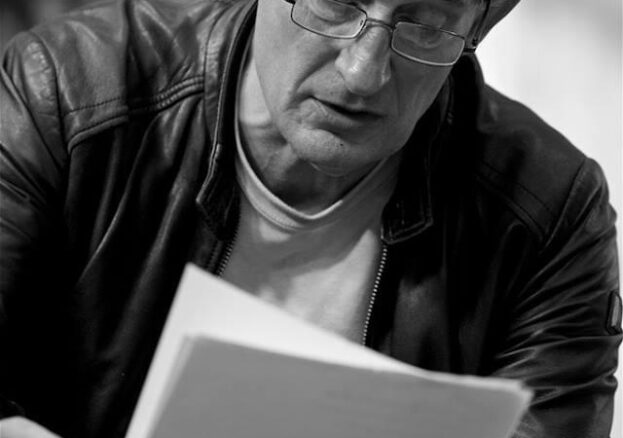Andy Croft online talk
Sarah-Clare Conlon, Literature Editor
As part of the Working Class Movement Library‘s busy programme of online live-streamed talks (including the Engels Memorial Talk on 26 November), Andy Croft takes up the Invisible Histories virtual mic to speak about his biography of radical English poet Randall Swingler. The Years of Anger draws on extensive sources, including security services files, to present a detailed account of this influential poet, lyricist and activist.
Andy Croft takes up the Invisible Histories virtual mic to speak about his biography of radical English poet Randall Swingler.
Andy Croft has published numerous anthologies of poetry and written several previous studies of Randall Swingler and books about political literature, including Randall Swingler: Poet of the Italian campaign (2008), Comrade Heart: A life of Randall Swingler (2003), A Weapon in the Struggle: Essays on the cultural history of the Communist Party of Great Britain (1998), and Red Letter Days: British fiction in the 1930s (1990). Other books by him include Out of the Old Earth, After the Party, A Creative Approach to Teaching Rhythm and Rhyme and Forty-six Quid and a Bag of Dirty Washing, along with seven novels and 42 (!) books for teenagers. Busy man.
A literary entrepreneur, Randall Swingler (1909–67) was founder of radical paperback publishing company Fore Publications, editor of Left Review and Our Time, and literary editor of the Daily Worker, later becoming a staff reporter, until the paper was banned in 1941. In the 1930s, he contributed several plays for Unity Theatre. In 1936, MI5 opened what would become a 20-year-long file on him, prompted by a song he co-wrote with Alan Bush for a concert organised to mark the arrival of the 1934 Hunger March into London. During the Second World War, Swingler served in North Africa and Italy, and was awarded the Military Medal for his part in the battle of Lake Comacchio. His collections The Years of Anger (1946) and The God in the Cave (1950) contain arguably some of the greatest poems of the Italian campaign. After the war, Swingler was blacklisted by the BBC. Orwell attacked him in Polemic and included him in the list of names he offered the security services in 1949. Stephen Spender vilified him in The God That Failed.






























